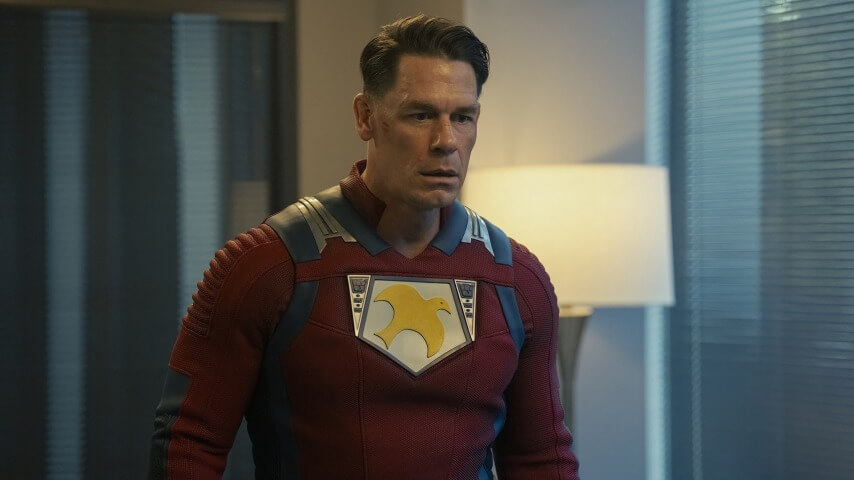James Gunn does not shy away from politics in his projects; it’s not for nothing that his recent animated series Creature Commandos (the very first entry in Gunn’s rebooted DC Comics Universe) had a character whose entire reason for existing was killing members of the Third Reich. (And their spiritual descendants, as G.I. Robot, voiced by Gunn’s brother Sean, wound up gunning down plenty of modern-day Neo Nazis over the course of the series, too.) And the twist of his current season of Peacemaker, rolled out in this week’s installment of the HBO Max series, seems primed to see John Cena’s titular anti-hero in a running fight with a whole universe’s worth of white supremacists, after realizing that the alternate world he’s been luxuriating in was one where the Nazis won World War II, and where virulent and violent racism is rampant.
That being said—and despite whatever parallels audiences might be inclined to draw between that world and modern events in the real one—Gunn swears he’s not creating any particular political parallels on purpose. The writer-director-producer addressed the way his stories might be seen to be rhyming with reality in a new Variety interview, released in the wake of the show’s latest episode. Notably, Gunn gave a “[Long pause]” when interviewer Adam B. Vary asked, a bit bluntly, “How has it been for you, knowing that this twist was coming, and watching the real world edge closer to Earth X more than anybody would have anticipated?”
Here’s Gunn’s response, which also touched on parallels that many people drew when watching his Superman—which has a major subplot about a more militarily advanced nation, backed by Western tech interests, attacking and bullying a much weaker one—earlier this year:
I think I don’t know how to answer the question. Obviously, there are many things in the world I’m not happy with. I’m not so narcissistic as to think of the world in relationship to my TV show. I mean, there’s weird things with this show. There were weird things with Superman. Absolutely 100 percent of that movie was written and done before anything ever happened between Israel and Palestine, and everyone continues to refuse to believe that that’s not what it’s about. It’s not. It just isn’t. You can take whatever you want from that, to mean what you want, but I didn’t write it to be a stand in for Israel and Palestine. [With Peacemaker] you’ll see some things next episode where, of course, there’s parallels. We’ve seen more racism lately, right? Is that because there’s more racism or because it’s more OK to be out in the open? It’s probably the latter. That’s obviously fucking discouraging. And if my stupid TV show has anything to do with people being like, “Oh, maybe I should be more aware of my prejudices,” great. But that isn’t what I write the show for. I write the show for the emotional angle, just like I wrote Superman to be about kindness. If there was a sociopolitical aspect of Superman, it’s that there has been an absence of kindness and understanding and loving a human being, no matter what their thoughts or feelings are.
Elsewhere in the interview, Gunn addressed less politically fraught material—including the big DCU cameo in “Ignorance Is Chris”—while also reflecting on how he hid the Peacemaker season’s twist “in very plain sight.”
You know, Peacemaker is not a bad guy. He’s not a racist, but he does have this sort of narcissistic tendency to judge moments based on how he’s being treated and judged. He’s able to go to this other planet and not notice at all that, “Hey, wait a second…” I mean, you think we’re blind for not noticing it on a TV show with clips that are 30 seconds long; he didn’t notice it walking and driving around that everybody was white. Whereas Harcourt, who’s more attentive to details, and probably more sensitive to that sort of thing anyway, notices the minute she’s out in public. She’s looking around, going, “What the fuck?” But part of it is us, you know? Honest to God, I don’t think I would have noticed if I was in a bubble and not talking to people online about the show. And I think that is something that we maybe can all think about.

 Keep scrolling for more great stories.
Keep scrolling for more great stories.
